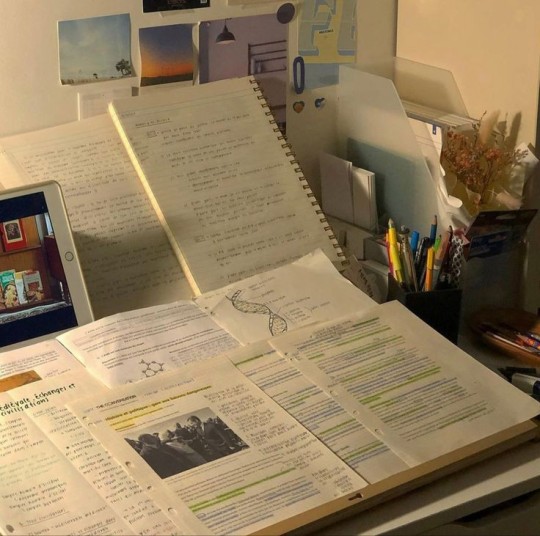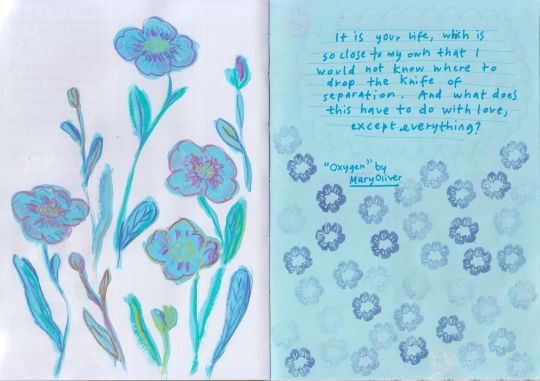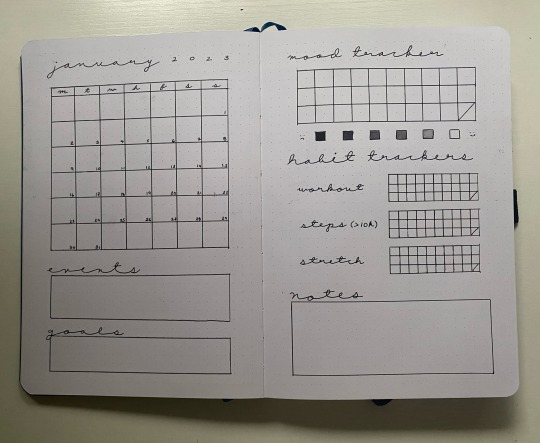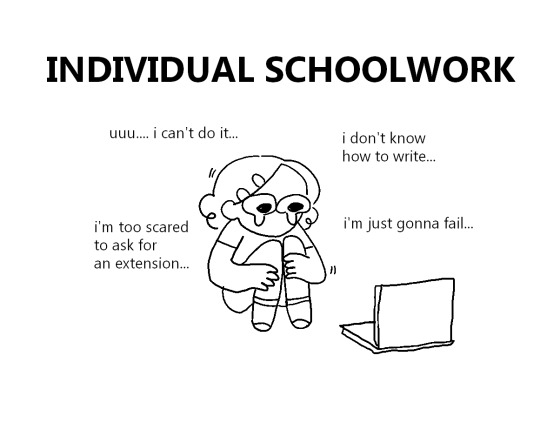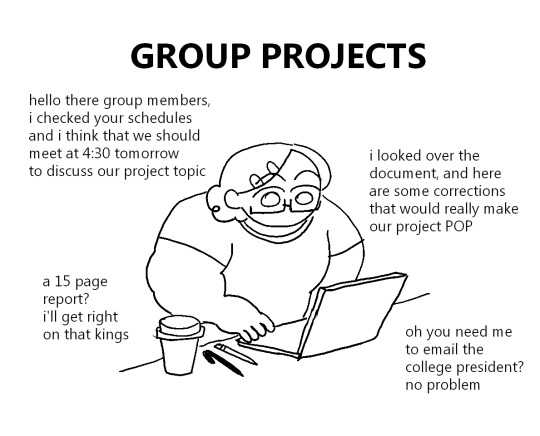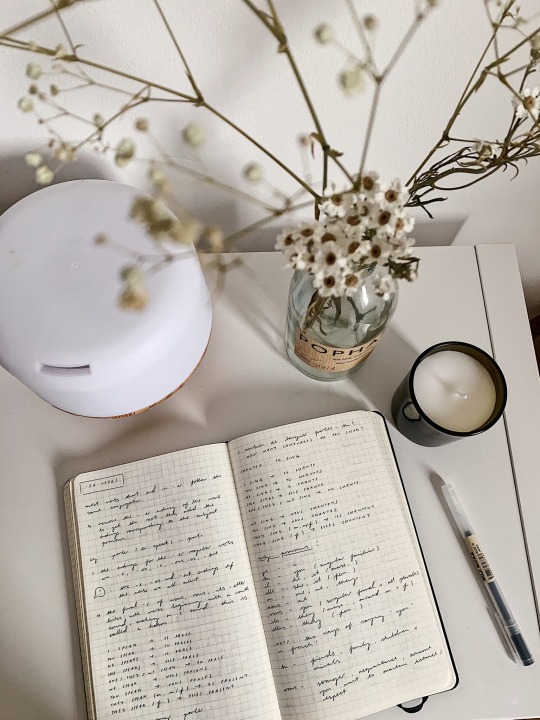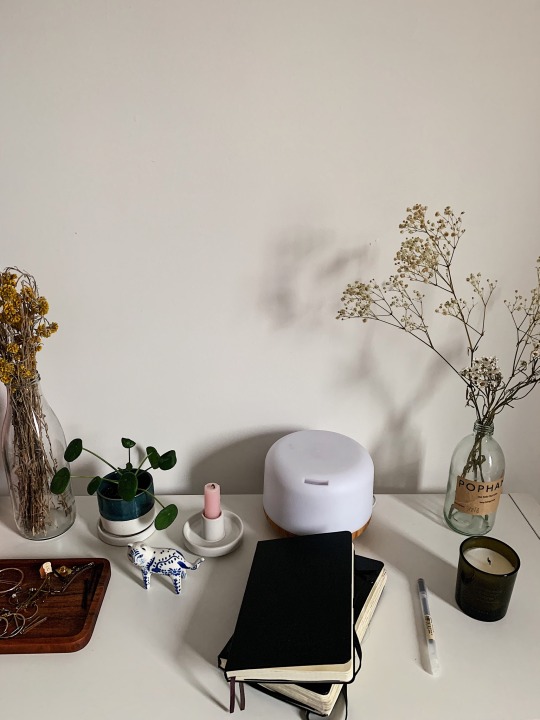Text

6.11.21
A bit distracted today :( struggling to stay motivated but i'm going to keep trying my best
109 notes
·
View notes
Text
introspective journal prompts (with some mental health sprinkled in)
I tried to make these mostly positive, but life isn't always positive.
list ways to be kind to yourself
a moment a stranger changed your life that they didn't realize
small things in the world that are beautiful
steps forward you've taken in the last week/month/year (IT IS OK IF THEY ARE SMALL)
10 things you love about yourself
10 things you look forward to
hard questions to ask yourself
what moment in time would you go back to over and over?
what really just pisses you off right now? get it out.
the soundtrack to your life right now
something you know, something you want to know, something you have learned
draw yourself, label all the parts you love.
what is something you know is harming you but still keep around? don't feel guilty, just acknowledge it and be gentle with yourself
write a dialogue with your younger self, or a letter to them
is this what you thought your five year plan would look like five years ago?
roadmap to how you got here
pick something that makes you happy; now write a recipe for it like you're baking a cake
1K notes
·
View notes
Text


13 • 02 | Monday
Went a little overboard planning next month’s spread. Wasn’t as productive as I’d like today but will do better tomorrow.
Feat some doodles I did recently!
2 notes
·
View notes
Note
Do you have any tips for writing an essay?
I don’t know about tips, but I can share my process of essay-writing for literature and philosophy courses. I use MHRA referencing. I have written on essays and writing style before here: [x]
1. Deciding on a topic – this seems obvious but I always try and choose a topic which is interesting, or inspiring (or that I disagree with and makes me angry).
Start thinking as soon as possible about possible arguments. If there is an essay question or quote to respond to, underline key terms and make them the starting point for research.
2. Reading and research – write down every quote relevant to the essay topic, both primary and secondary reading, in a document with annotations and thoughts on each one, as well as the full reference. I usually start by defining my terms, then branch out from there.
‘It seems to me the most sensible answer is this: approach two or three of the most general critical texts immediately, just to get an idea of the background against which your author moves. Then approach the original author directly, and always try to understand exactly what he says. Afterwards, explore the rest of the critical literature. Finally, return to examine the author in the light of the newly acquired ideas. But this advice is quite abstract. In reality, students tend to follow the rhythm of their desire, and often there is nothing wrong with consuming texts in a disorderly way.’Umberto Eco, How to Write a Thesis (Cambridge: MIT Press, 2015), p. 103.
3. Planning – think about the structure before starting to write. Essays usually have:
an introduction
a critical framework (this may be defining terms, or situating your argument in relation to other works on the same topic)
analysis
conclusions
There might be a section before concluding which revisits the second section in light of analysis. In an essay of 5,000 words, 1,000-2,000 words might be the introduction and critical framework, followed by 2,000 words of analysis and between 500 and 1,000 words to conclude. Equally weighted sections should make an essay seem well balanced and paced.
I usually give myself lots of helpful section headings to keep the essay structure from going astray. I even write instructions: ‘write a sentence or paragraph here about…’, ‘don’t forget to try and work in…’. This also means you won’t start with a blank page.
4. Writing – I start either in my analysis section or in the critical framework. These are the main sections of the essay. I always try to define the terms I use as clearly as possible, and situate my argument within the field (i.e. argue with other writers on the same topic). Write conclusions and introductions last to frame the essay. Footnote and reference during the writing process.
Analysis paragraphs should have an argument, a quote to back it up, an explanation of how the quote backs up the argument, then a link to the next paragraph. UK students often use the acronym PEEL – Point, Evidence, Explanation, Link. It works in most cases.
5. Editing – reading aloud helps, as does proofreading (especially if done by someone else, or printed rather than on a screen). Taking a day away can give clarity. Beware of over-editing! : - )
Book recommendations:
Hazel Hutchinson, Essays and Dissertations Made Easy
Strunk and White, The Elements of Style
Umberto Eco, How to Write a Thesis
Brian Dillon, Essayism
2K notes
·
View notes
Photo
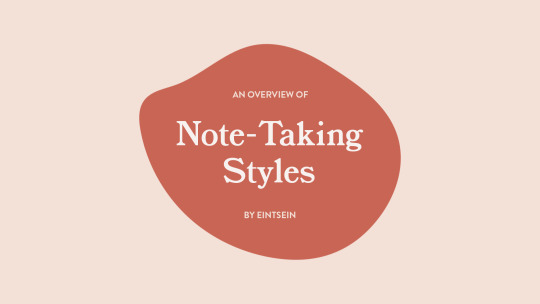

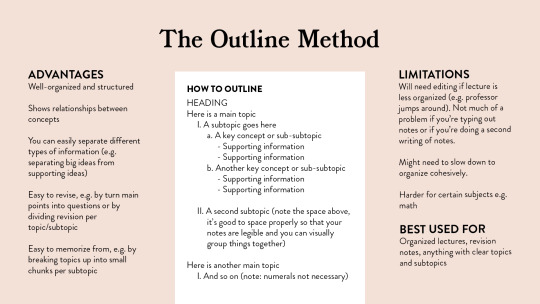
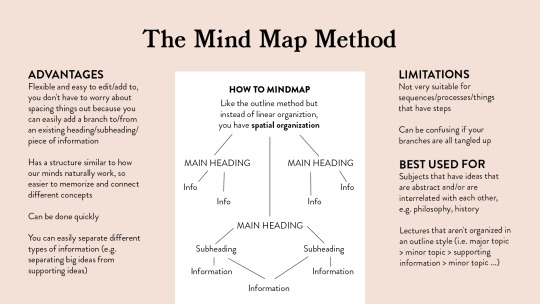

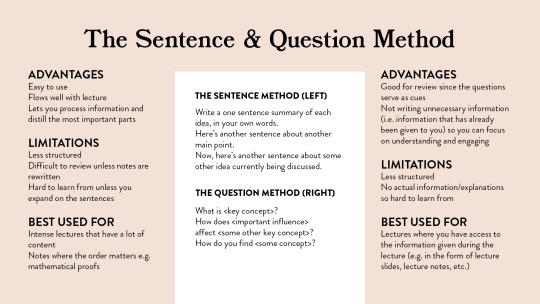
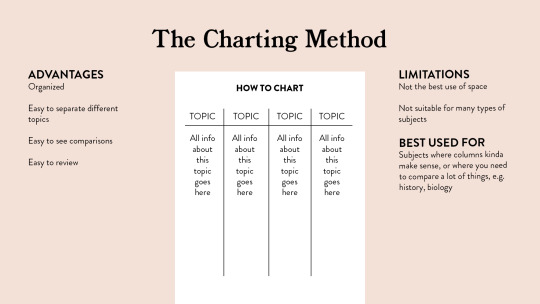


An Overview of Note-Taking Styles
Note-taking is one of the most essential skills a student should master. It allows you to record and review information to be used in the future. But what’s the best way to do so? Here’s an overview of note-taking styles that can help you maximize your learning!
56K notes
·
View notes
Text
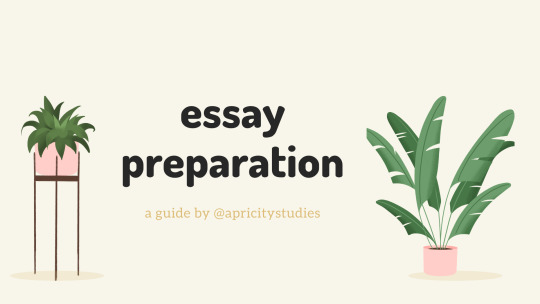
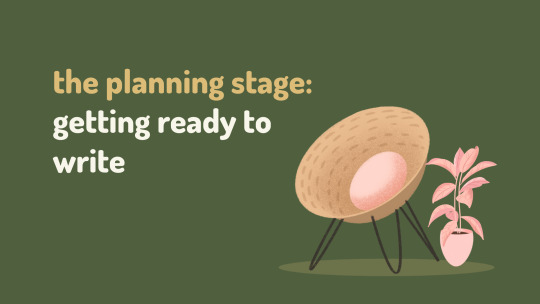
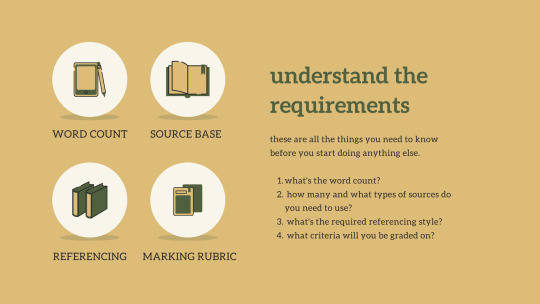
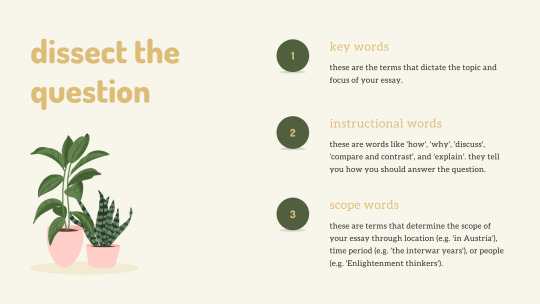
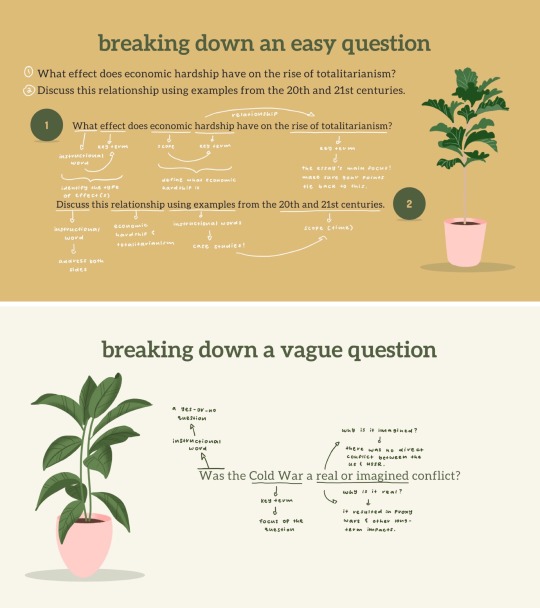

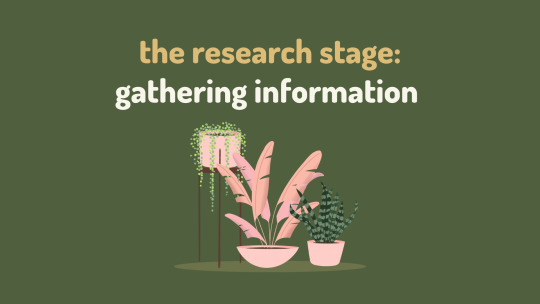
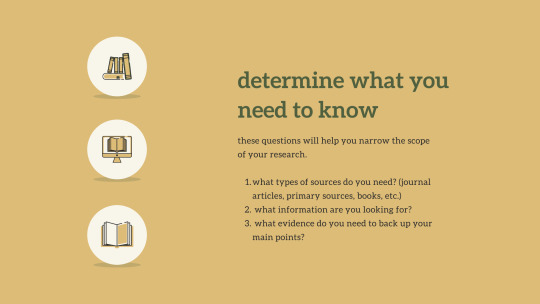
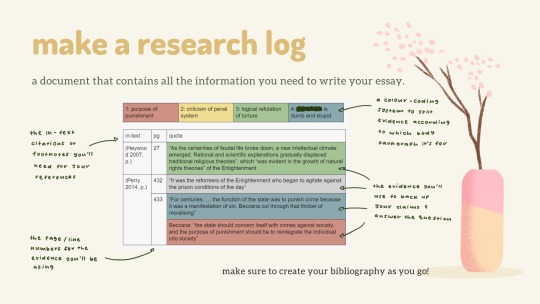
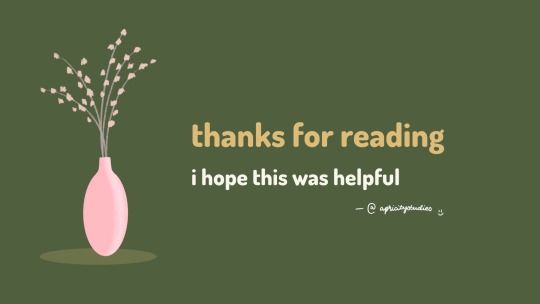
every minute spent on planning saves you ten minutes spent on execution. short essays probably don't require that much preparation beforehand, but if you're writing something longer you should probably spend some time planning first. this is the process i go through when planning my essays, and i find it works really well!
#essays#writing#studyblr#studyspo#productivity#motivation#student#organization#essay writing#study tips
14K notes
·
View notes
Photo

‘How I Plan and Write English Literature Essays at University’. I made a thread on twitter compiling all the advice I’ve gathered and the strategy I’ve developed over the past few years on how to write university level literature essays. I hope it’s informative and useful for some of you !
626 notes
·
View notes
Text
How to remain productive with online classes:
A few tips from a broke neuro-divergent academic
Try and wake up early, and go to bed early too. I’m not saying get up at 5 (unless that’s you’re thing) but sleeping into noon is a productivity blackhole. I go for 8 or 8:30, generally, but that’s just what works for me.
Get dressed for the day. I’m not talking like, jeans and a business casual outfit, but a clean pair of sweatpants, fresh underwear, and a new shirt can really put you in the mood for a new morning.
Have a workspace. Whether it be the kitchen table, a desk, a spot on the floor with a lap desk, have a place that’s dedicated to your work. Have items that signify that workspace too, like your book, planner, laptop, lamp, whatever. It can help you get into the zone, being in that space.
Have a morning drink. I choose earl grey tea with honey and cream, but black coffee, herbal tea, lemon water, whatever works for you is awesome, as long as itll wake you up and start your day.
To do lists. To do lists and to do lists and more to do lists. I have three. One is a post it weekly planner deal (3.99 at a local grocery store). it’s a weekly spread already set up, and if you’re anything like me, its really hard to set up a weekly spread. Then I have an app called Ike. I have a daily to do list I write on that app, and then I have four more to-do lists of what I have to for each specific class.
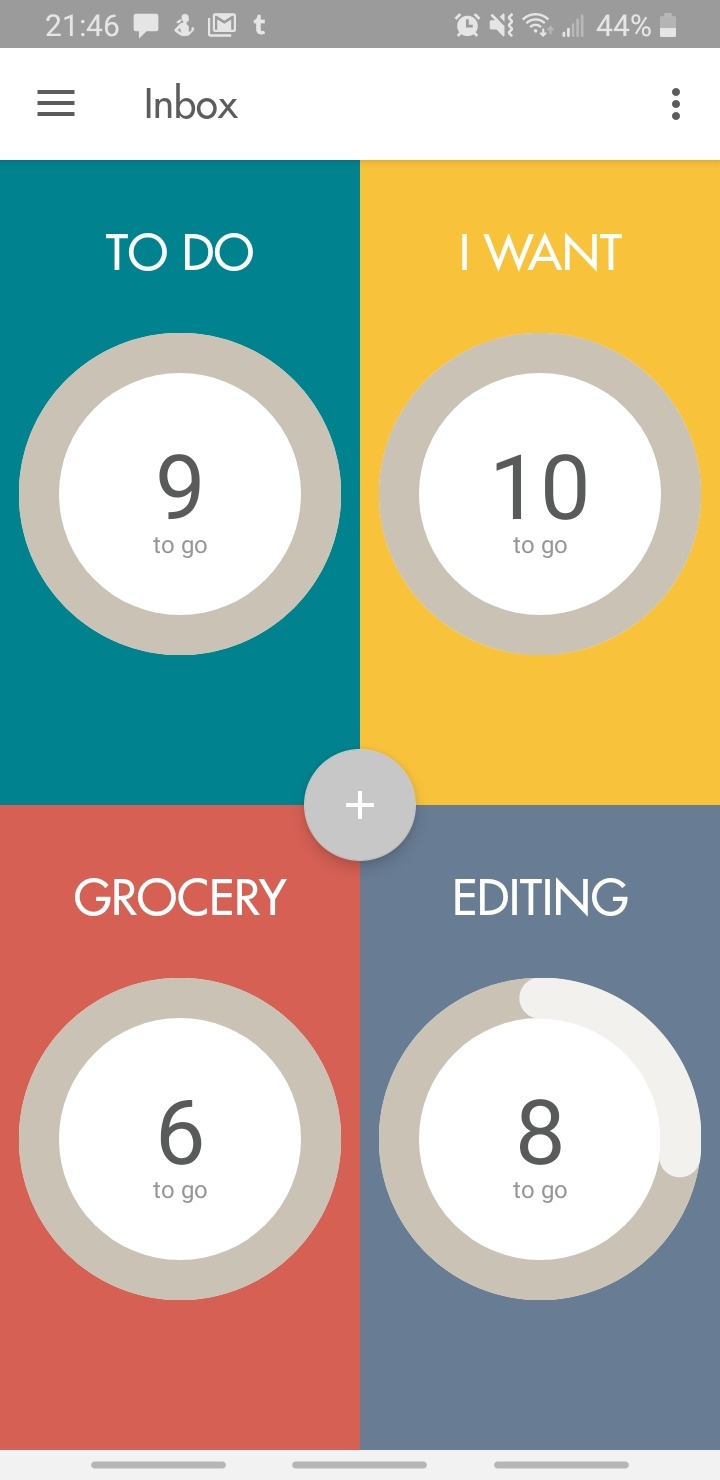



Spread out your assignments. Don’t overwhelm yourself. If you’re professors are like mine, and have the due date for each module as Sunday at midnight. What I do is spread out all my assignments from Monday to Saturday, and I leave Sunday blank, so anything I didn’t do that week, I finish on Sunday. It works for me, it might work for you.
Have a folder for each class, and a notebook for each class. I hate spending money, I’m broke as hell, sono al verde as the Italians say, but a 0.99 cent folder and a 0.25 cent notebook can do wonders for motivating one to fill them up.
Study with a drink. Tea, water, coffee, whatever, but my go to is generally a warm drink. I cannot study if I’m cold, I get tired and groggy, so warm socks, a robe, and a hot drink really keep me going.
Take breaks. Make time for your hobbies, for something fun. Working without stopping absolutely destroys my motivation, and let me tell you, when I feel like that, an episode of Avatar and a snack gets me right back on the wagon.
Do self check ins. Does your back hurt? Are you sad? Stressed? Do you have to pee? Are you hungry? Never put your homework over your health. You won’t be able to get anything done well anyway if you’ve got those blocks.
Most importantly, get enough sleep. I beg of you. Sleep is so important, and it’s the game changer, at least to me. We as students have such an amazing opportunity to get more sleep than we ever have before during the year. Take advantage of that.
13K notes
·
View notes
Text
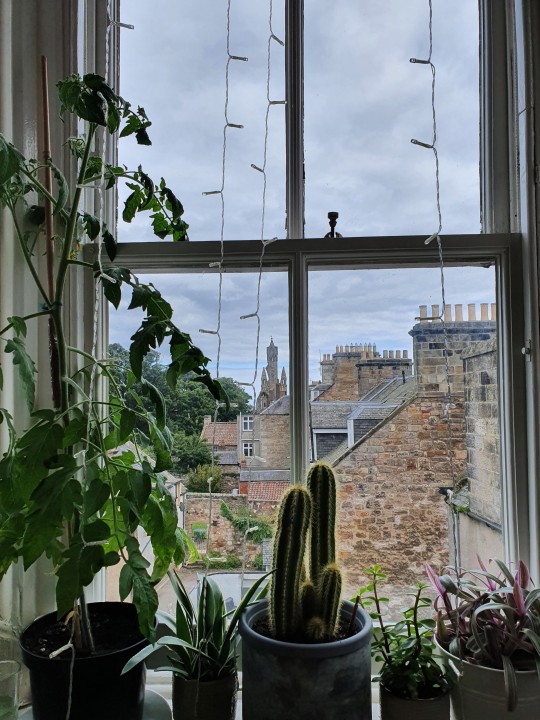

25/8/2020 | I left home and came back to my uni flat just in time, a week later my brother goes back to school and now is home sick and isolated in his room...
1K notes
·
View notes
Photo


from a distance, most things look beautiful
6K notes
·
View notes
Text
10 Things I Learnt from my First Year at Uni

Go to Orientation to make friends - and not just with people your age. Usually O-week will be run by students in the batch above you, and they’re the ones who can tell you which professors to avoid, which professors whose classes you should fight for, where the best food places are, and where the hell that obscure room you’re having your first class in is. Some seniors will even disseminate compiled study guides to the freshmen in their group.
Be selective with your time. University is not cheap, and time is precious. Check sites like ratemyprofessor.com and ask around to know which professors to avoid. If you hate a class, try to drop it as soon as soon as you can. And don’t overload yourself with extracurriculars; those supplement your uni experience, but your studies still form the backbone.
Try everything. Hang on, didn’t you just say to be selective? Well, sometimes you can’t evaluate your choices properly until you try them out. Attend club introductory teas, or sit in for a few sessions to figure out if it’s for you. If it doesn’t seem worth your time, you can just stop attending. Don’t let anyone strong-arm you into doing something you dont find useful or fulfilling. Spend that time studying or making connections.
Make friends with your professor! My friends who were on a first name basis with their professors were the first to find out if a class was cancelled, how they did on a test etc. Ethical considerations aside, it’s great to have a few professors who you have a real connection to, both for your learning and for your professional growth. Make use of office hours, and message your professor for help if they give out their mobile number.
Use Linkedin. You know that function on Linkedin where you can see which people at an organisation went to the same school as you? Use the heck out of it. Reach out to people you don’t know for an informational interview, and ask them about the industry they work in. Write cold call emails; people are much more willing to help someone whose first line of their email states “I’m a student at XXX university” than someone who’s already graduated.
Take inspiration from (not copy!) a senior’s path. But how do you figure out what internships to do, what research programmes to join, and what to do after you graduate? Look up what your seniors did! Simply google “Linkedin (Your university) (University course)”. Find out which professors they did undergraduate research with over the summer, what clubs they participated in m, what companies they interned at, and who their current employers are. Note, I’m NOT telling you to copy anybody’s path, but to know your options. You’ll probably discover opportunities you didn’t even know existed.
Don’t let your homework pile up. The snowball effect is real. Don’t skip lectures or tutorials thinking you’ll catch up on them later; you won’t. Or if you do, it’ll be one week before your exams, when you’re speeding through 5 weeks worth of lectures and tutorials.
Seek help FAST. The counselor’s office is there for a reason. If you’re feeling stressed out, lost, or just have a lot of things on your mind, don’t be embarrassed to seek professional help on campus. Just take it as free therapy (you’re paying your school so much already!) Most likely if you have a problem, students before you have too. Also, if you feel the counselor you spoke too wasn’t understanding to your situation, you can (politely) ask to speak to someone else.
Everyone needs friends. How to make friends with your classmates fast: ask them if they want to grab lunch after class, ask if they want to exchange numbers. Ask them how they found a test, then initiate a study date. Finding friends is different in a big place like college, it’s a bit like dating, you gotta show your interest and see if they reciprocate.
Remember that everyone’s path is different. This is gonna be a long one, so read past the line if interested:
By the end of my first year of uni, the social media platform that was giving me the most stress by far was Linkedin. Going to a “high-achieving” high school meant that my dash was now filled with people in Cambridge, Brown, Dartmouth, etc. and/or studying things like economics, law or medicine at prestigious colleges, many on scholarships. Meanwhile, I was doing a “less prestigious” degree at a smaller, local university. It used to bother me terribly that I was achieving “less” than them - once I even burst into tears in my dorm. And now I’m a college “dropout”, happy that I made the choice that was best for me. It took a lot of work for me to get to that point, and it took learning to separate my self-worth from how people perceived my university, my degree and myself (one article that really helped me was this one.)
Of course, if you went to a prestigious university you’ll have a lot more opportunities than those who don’t. But not everyone has the same opportunities or knowledge to make it to those highly-selective colleges. People who attend Harvard aren’t inherently “better” people than those who don’t .
On the topic of “prestigious” vs “less-prestigious” degrees - if you’re interested in geology, there’s no use in going to the best law school there is and being absolutely miserable there. This might get a bit anti-capitalist but why does society even value lawyers more than geologists? Why does a consultant at McKinsey get paid top-dollar, while teachers, nurses, taxi drivers - who arguably do more to keep the world running - get paid a pittance in comparison? (Bullshit Jobs by David Graeber is great and goes into a lot of detail into this.) The value our society ascribes to certain professions has a lot to do with how much money it makes, which usually means how well it serves the 1%. Not its usefulness to society, the level of satisfaction people can get from those jobs, or the value they create for other people.
Your worth is not defined by your degree (or lack of one), the job you will have in the future or the size of your future paycheck. Your Linkedin profile will never be able to capture your impact on the world, your value to others as a sibling, a child, a friend, a partner, a parent, a mentor, a neighbour, or even a stranger who goes out of your way to smile to the bus driver.
To anyone who needed to here this today: you are worthy!
#uniblr#studyblr#freshman tips#freshman advice#first year advice#college advice#study#studying#study tips#exam tips#mental health#mental health uni#uni#university#college#freshman
0 notes


